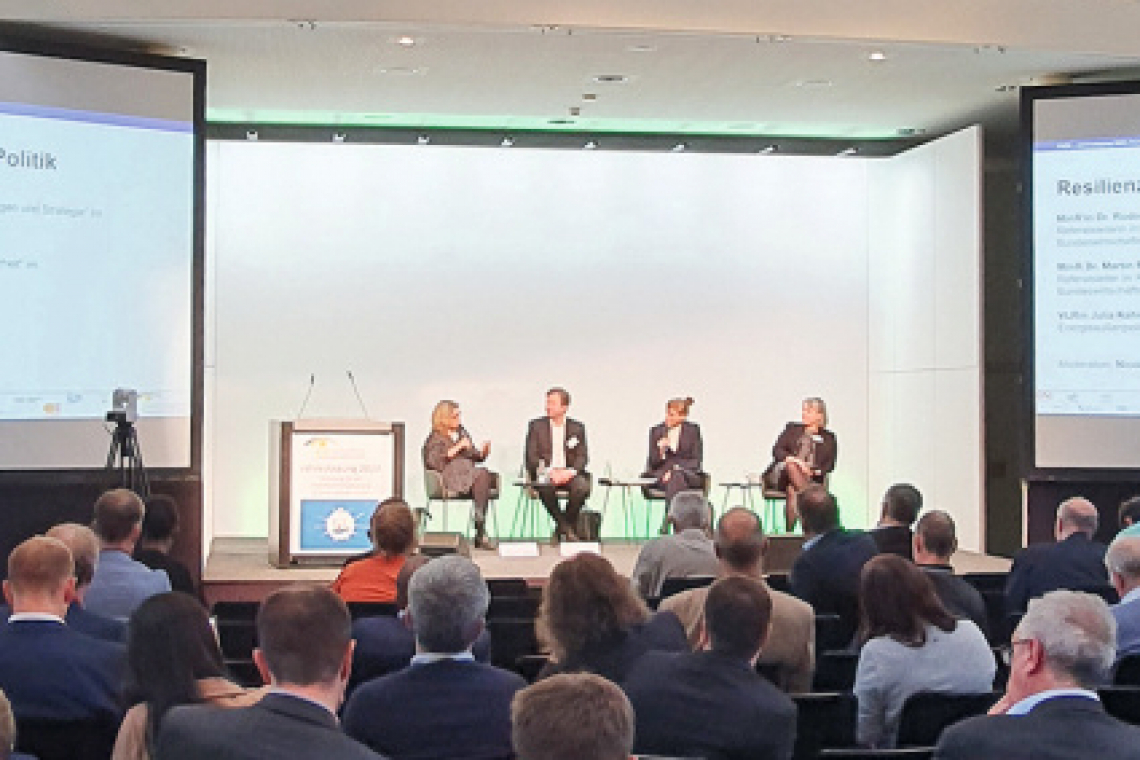At the annual conference of the Research Association for Renewable Energies (FVEE) on October 10 and 11 at the Umweltforum Berlin, scientists demonstrated which technical, political and social options can be used to strengthen the resilience of energy systems.
Multiple crises threaten the energy supply
Conference chair Professor Uwe Rau from Forschungszentrum Jülich sees a great need for action: "The vulnerability and susceptibility of the energy system have become drastically apparent in recent years. This is because the political, social, economic and ecological crises are mutually reinforcing each other and are also affecting the energy system." Professor Ingo Sass, German Research Centre for Geosciences Potsdam, second scientific director of the FVEE annual conference, formulated the current direction for energy research and energy policy: "The energy supply must be made more renewable and more independent and must be upgraded in order to guarantee the supply of electricity, heat and mobility even under crisis conditions." Rau concluded: "Politics and science must include resilience as an additional target dimension for the design of the sustainable energy system, against which the individual measures, such as sector coupling, decentralization and digitalization, can be measured."
Technological solutions can increase security of supply
At the conference, the researchers will present technologies and strategies that increase the energy system's resilience to changes and disruptions at national and local level. Innovative technologies to increase energy efficiency and reduce emissions also contribute to improving system resilience. This is because technologies such as deep geothermal energy, hybrid heat pump systems or absorption heat pumps with biomass reduce dependence on limited resources and increase system flexibility.
Intelligent sector coupling between the energy sectors of heating, cooling, electricity and transport can also help to increase the resilience of the overall system.
Renewable energy systems promote independence and resilience. For example, renewable energy systems are inherently more resilient than conventional centralized structures because they are specifically smaller and distributed across the country. Energy storage systems also increase system stability. They provide the necessary redundancy, integrate fluctuating renewable energy and ensure decentralization as a special factor of resilience. They offer the necessary flexibility for a resilient energy supply. Research is the key factor in improving resilience. For resilient electricity grids, for example, the opportunities offered by automation and self-organization in distribution grids and how the effects of a blackout can be reduced with distributed island grid capability and coordinated grid reconstruction still need to be investigated.
Establishing and securing domestic production for key energy technologies
A resilient energy system requires a secure supply of basic technologies for the generation, storage and efficient use of sustainable, renewable energy. Conference chair Uwe Rau: "With the global transformation of energy systems, the markets for key energy technologies such as photovoltaics, wind energy, geothermal energy, system technology and storage technologies will continue to grow very strongly. Germany and Europe need more independence in the provision of these key technologies to ensure their own supply. To achieve this, Germany must strengthen the production of climate-neutral technologies in Europe on the basis of its technological leadership." Ingo Sass added: "This requires a stable political framework and reliable funding instruments in Germany and the EU. The EU Commission's planned Net Zero Industry Act is a step in the right direction. Germany needs to do its homework at the same time: for example, there is a lack of underground spatial planning that would help to utilize the entire base load-capable geothermal potential."
Reducing dependence on raw material and energy imports
The conference showed the status quo of Germany's self-sufficiency and its international energy supply. The remaining import requirements for a future climate-neutral Germany were analyzed and discussed, as well as which previously untapped domestic potentials need to be tapped in order to reduce dependence on energy imports. The future focus on increased European production of renewable energy technology presents both opportunities and challenges. European research has a high capacity for innovation with which it can and wants to support domestic industry in competition with Asian companies.
If the path towards a circular economy is successful, regenerative cycles can promote independence and resilience. Short, regionally designed material cycles reduce global dependencies and can also lead to greater social justice.
Efficient cyber resilience
The degree of digitalization of energy systems is increasing. In order to protect this new Achilles' heel, cyber attacks must be detected at an early stage and compromised components identified. For example, the researchers are investigating how a partially compromised system can be divided into secure yet efficient subsystems. And they are developing strategies on how information about attacks and anomalies can be exchanged between infrastructure operators in order to detect coordinated attacks.
Solutions from politics, business and society
In addition to the technical dimension, the conference also addressed socio-political aspects. The research association invited guests from politics and business to shed light on the topic of resilience from a political perspective. They discussed the key resilience challenges for industry and the energy sector and which energy research tasks should be given greater focus.
Socially, the necessary paradigm shift - away from increasing consumption and towards sufficiency - can make an important contribution to crisis prevention. People who want to live and do business in a sufficient way are constantly asking themselves how they can satisfy their needs in an environmentally friendly and socially just way and are limiting their own overconsumption of goods, raw materials and therefore also energy. Among other things, the conference discussed how sufficiency supports the resilience of the energy system and how sustainable behavior can be promoted by politics.


